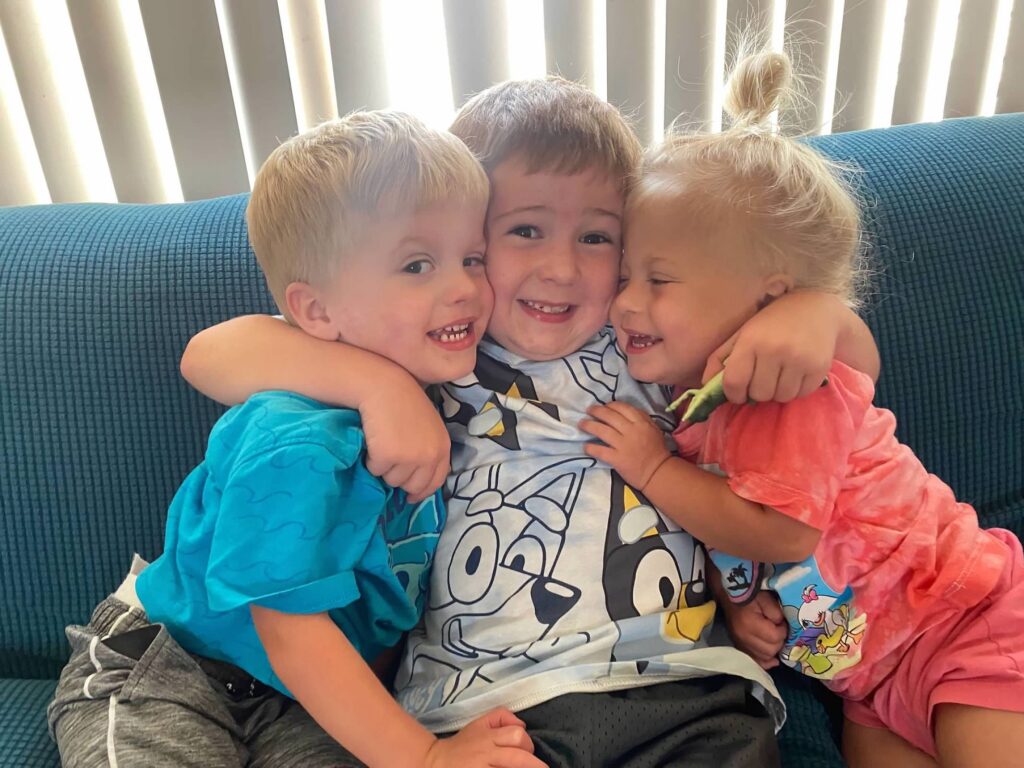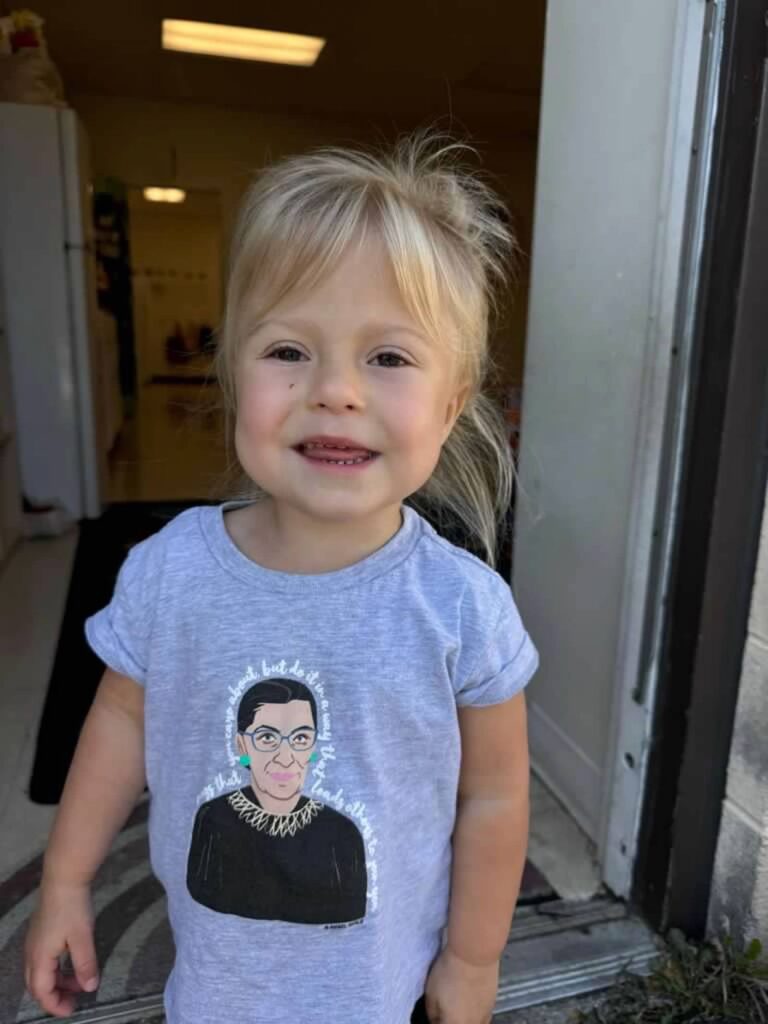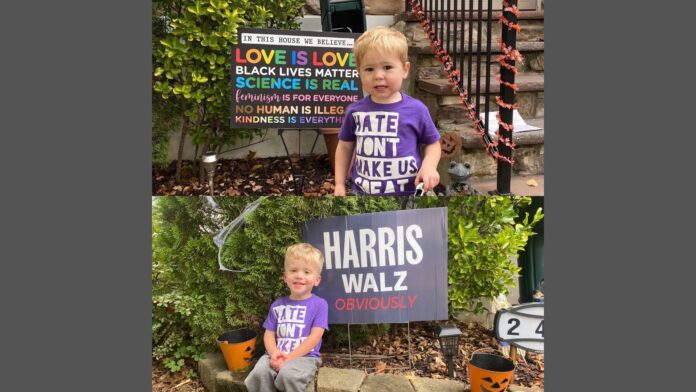A sign on my front lawn easily answers this headline: Harris-Walz. Obviously.
There was never any question in my mind that I would vote for ANYONE other than Donald Trump in the upcoming presidential election. Like the majority of LGBTQ+ Americans, everything Trump stands for, has done to this country and wants to do to this country goes against every fiber of my being. While I would have voted for my grumpy, socially inept 8-year-old rescue dog over Trump, I firmly believe Kamala Harris is the right pick, not just because she isn’t Trump but for who she actually is and what she has done.
For me, it’s an obvious, and an easy, pick. Though I will of course be selecting Harris/Walz on Election Day, it’s not really them any of us are voting for. While a presidential election news cycle—this one, in particular—is certainly anchored around he said, she said…plans vs. plans (or concepts of a plan, in Trump’s case)…voting records and criminal records, we’re ultimately not really voting for one person over the other. Rather, it’s deciding on one set of ideals, one vision of what our country is and what it should be, one message we can stand behind.
And for most parents, their children are the deciding factor. This year, I’m not just voting for Kamala and Tim—I’m also voting for Jackson, August and Avery. Here’s why:
Celebrating the melting pot
We’re trying to raise our kids to understand that the differences that set people apart are what make our communities and our country great. We don’t want them to see their classmates, their teammates, their neighborhood friends as a monolith—but rather to appreciate that each kid has a unique background, skills and challenges, and those are beautiful.
While we want them to respect others, we also are trying to prepare them for a childhood where they may feel othered in a number of ways. LGBTQ+ parents are certainly not the rarity we used to be, but the overwhelming number of kids our trio will encounter won’t have shared that upbringing. When they talk about their families at school or bring their parents to sporting events, school plays and graduations, this difference is going to continuously make them stand out, and our hope is that they have a foundational belief in diversity that enables them to embrace that experience.
It’s even starting in our own home. Jackson just got glasses. August is so skinny that his pants are always falling down. Avery has a feeding tube. We want them to cheer on each other’s uniqueness; I think that will help them in the future when others don’t.
I know that Avery especially—a former 18-ounce micropreemie who is a head smaller than the girls in her daycare class and is fed through a tube in her stomach—may struggle with fitting in. August talks all about his sister’s “tubie” and Jackson loves to help us give her meds and water flushes through her port. As Avery gets older, we’re going to follow the lead of other G-tube parents and visit her class to show her peers how the tube works and why she uses it, in an effort to dispel the misunderstanding that fuels bullying.
I want my kids to grow up in a country whose leaders also visibly embrace diversity, and who set policies from the fundamental viewpoint that the differences that set Americans apart—sexual orientation, gender identity, race, religion, different abilities—are this country’s greatest power. Having a leader who uses differences to belittle, ridicule and divide Americans sets a tone from the top that will derail the culture change our country needs so that kids can embrace their authentic selves today and into adulthood.

The greater good
Kids are inherently self-interested; they can’t help it. They don’t have the brain development or life experience to understand how big and interconnected the world is. However, American voters do (or should). When my kids reach voting age, I want them to cast their ballots not just for themselves, but for their own loved ones, their communities, those who don’t get a say. Even if electing one candidate could put $11 more in your paycheck every year, what about the lasting damage they’ll inflict on so many other people and segments of society?
Family in focus
The other day, Avery was curious about a big photo collage frame in our living room with pictures from my and Ashlee’s wedding. I pointed out all the family and friends she knows, and she talked about how she loved Ashlee’s smile: “Mom’s a happy girl,” she giggled.
That’s all they know about our wedding day—that it was a beautiful celebration of love. Not that just one year previously, it wouldn’t have been possible for us to have been legally wed in Pennsylvania. All three of them were born into a world where marriage equality is the reality. Eventually, we’ll teach them about that not-too-distant past where our family wouldn’t have had the same rights as others. And I want them to be shocked and confused about that—not to live with the cloak of fear that their parents’ marriage, or our rights to them, may be taken away. That can’t be the reality they know.
They need to know their country is moving ahead, not backwards. They need to see their family validated by federal policies, not vilified. They need to recognize their family in books at the school library, not to have those banned. They need to understand that love makes a family, not politicians or religion.

The glass ceiling
Like many Americans, I am thrilled at the possibility of electing our first female president, not just for what I think the female candidate will do for our country but for what that historic moment will say to our children. The presidential posters in elementary school tell the tale to our kids: Rows and rows of white men—43 across 220 years—until actual American diversity finally made its way onto that poster in 2009, and hopefully will continue to diversify after this election.
I want Avery to see that poster when she reaches elementary school and know that she wouldn’t need to be the first; the glass ceiling will have been broken for her and so many other girls and young women. And I want Jackson and August to understand that their sister shouldn’t have to work any harder than them for what they all want. As two white boys from the suburbs, they are going to have a lot of white male privilege as they move through the world. My hope is that they can see that white male mediocrity doesn’t always win, so they are going to need to bust their butts just like Avery will.
They come from a family of women, and I want them to see that women’s power doesn’t expire outside the walls of their house—that only a woman, not her society, can determine her power and place.
Not going back
The significance of the issues at stake in this election can’t be overstated: From protecting women’s reproductive freedom to the rights of LGBTQ+ people, immigrants and so many more—the results of this election will define generations to come. I don’t see it just as a policy matter: The ideals that each candidate is running on are wildly divergent. The triumph of one over the over has the potential to shape how our kids understand their country, their families, their futures and even themselves in the years to come.
Jackson was born two years into the Trump administration, and I can palpably remember how fearful we were about raising him in an environment that seemed to sanction hate and divisiveness. A Democratic win in 2024 shows our kids that, despite the challenges and adversity they may face, there is always room for hope, always a path to progress. We can’t go back.

